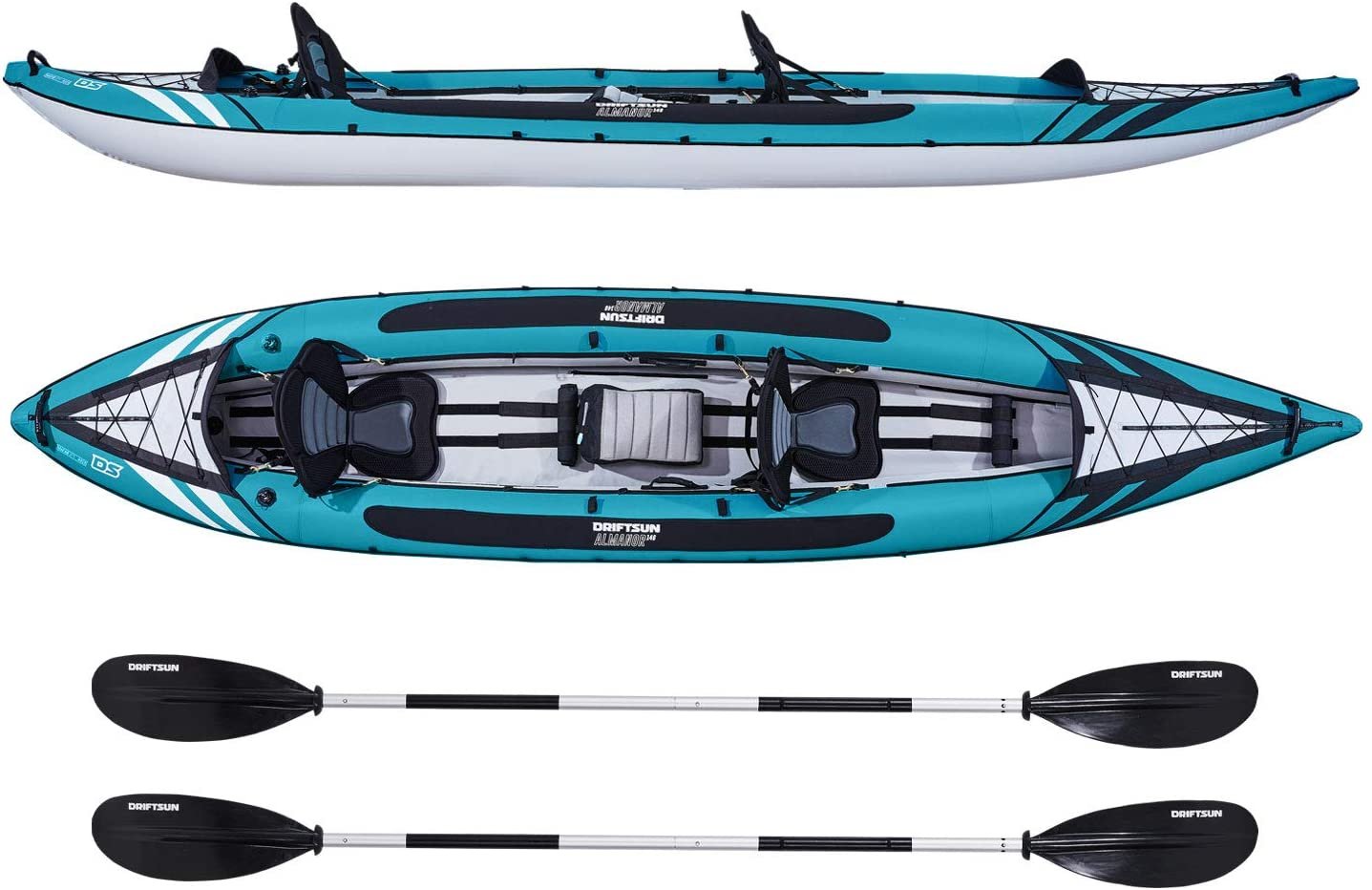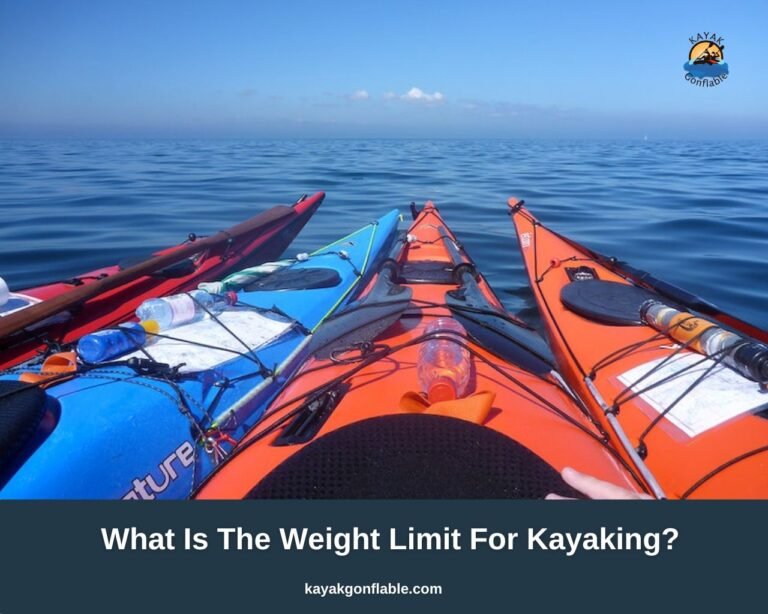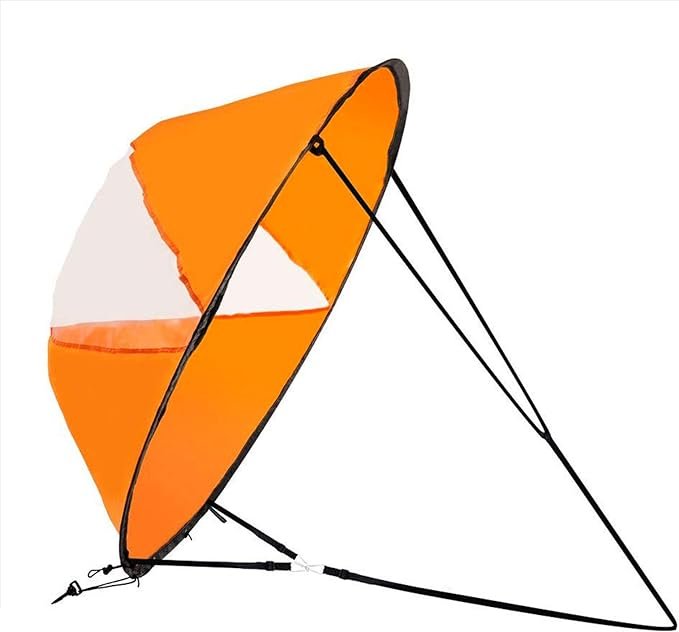Do Inflatable Kayaks Need to Be Registered?

Before we delve into the intricacies of whether or not an inflatable kayak needs to be registered, we’ll need to establish what inflatable kayaks are. Inflatable kayaks, often referred to as “i-kayaks,” are watercraft designed for recreational paddling purposes.
Unlike traditional hard-shell kayaks, inflatable kayaks are made from durable, puncture-resistant materials like PVC or Hypalon and can be inflated and deflated for easy transportation and storage.
Do I have to register My inflatable kayak?
To answer the question, regarding whether or not you need to register your inflatable kayak, in some states, you are mandated to register your inflatable kayak, and in others, you’re not. Most registrations are similar to how you register a boat/vehicle.
The process of registering your inflatable kayak across different states is different. Your kayak length and whether or not your kayak is motorized can also determine if should be registered or not. Inflatable boats, like other types of boats, must meet specific regulations to comply with local, state, or national laws.
Importance of Registering Your Kayak
- Safety and Emergency Situations: Registering your kayak helps ensure your safety while out on the water. In the unfortunate event of an emergency, authorities can quickly identify and locate registered watercraft, potentially speeding up rescue efforts.
- Theft Prevention: Registering your kayak also serves as a deterrent against theft. Stolen registered kayaks can be reported, making it easier for law enforcement to recover the stolen kayak and return it to its rightful owner.
- Legal Compliance: Registering your kayak is necessary when it comes to adhering to local boating laws. Non-compliance can lead to fines and legal consequences, which can dig a hole in your pocket and turn your kayaking experience sour rather quickly.
How to Determine if You Need to Register Your Inflatable Kayak
Several factors come into play when considering your inflatable kayak registration. One major factor to look into is whether your inflatable kayak is motorized. Additionally, the boat’s length also plays a significant role when it comes time for registration.
It’s necessary that you touch base with your state’s Department of Motor Vehicles (DMV), before deciding whether your inflatable kayak needs to be registered. In some cases, based on your location and kayak type, you may also need to get in touch with the Department of Natural Resources (DNR).
In some states, you might need to provide additional information, such as the date of purchase for the kayak, proof of purchase, and the boat owner’s details, if more than one person owns the vessel.
In the United States, there are typically two primary ways of registering any watercraft. The first involves the state registration process, during which your state will issue a registration number and sticker that you affix directly to your boat.
The second way is federal documentation through the U.S. Coast Guard (USCG), which can be completed online via the Vessel Documentation Management System platform. It’s important to also note that USCG-documented boats, motorized canoes, kayaks, and non-motorized inflatable kayaks are still subject to state laws.
So, which states require that you register your inflatable kayak? Washington D.C., Delaware, Iowa, Illinois, Ohio, Minnesota, Massachusetts
Motorized Kayaks and Registration
The presence and type of motor on your inflatable kayak play a crucial role in its registration process. If your kayak has a motor, the USCG documentation route mandates that it must be registered in the state of principal use.
The most common exception to boat registration involves non-motorized inflatables. While most states don’t require registration for non-motorized inflatables, some localities, like Ohio, Delaware, and Washington D.C., have specific requirements for manually powered inflatable kayaks.
In some states, the regulation depends on the type of motor your inflatable kayak uses. Some states only regulate gas-powered motors, while others, such as Iowa and Massachusetts, extend regulations to electric trolling motors.
Then there are states like Minnesota, which apply regulations uniformly to all types of inflatable boats with motors, regardless of the motor type.
Overview of Kayak Registration Requirements
What Is Vessel Registration?
To fully understand the registration requirements for inflatable kayaks, it’s essential to know what vessel registration entails.
Vessel registration is a legal process that mandates the documentation of watercraft, including kayaks, with relevant authorities. This documentation serves as proof of ownership and compliance with local boating regulations.
Watercraft Registration Requirements
Registration requirements for watercraft vary by jurisdiction. In most cases, these requirements involve providing personal information, vessel details, and payment of registration fees.
Registered kayaks are typically issued a unique identification number or registration certificate, which must be displayed on the kayak.
How Your Kayak Type Affects Your Registration
It is important to recognize that the distinction between hardshell and inflatable kayaks also plays a significant role in registration requirements.
- Hardshell Kayaks: Traditional hardshell kayaks are typically made from rigid materials like plastic, fiberglass, or composite materials. They are solid in structure and do not require inflation. Registration requirements for hardshell kayaks are generally well-established and consistent across various jurisdictions.
- Inflatable Kayaks: Inflatable kayaks, as mentioned earlier, are constructed from flexible materials that can be inflated for use and deflated for storage. These kayaks often occupy a unique space in registration regulations due to their portability and versatility.
Registration Process and Documentation
Registering your inflatable kayak involves a series of steps. Knowing this process is crucial to ensuring that you comply with local regulations.
- Ownership Documentation: To begin the registration process, you will typically need proof of ownership, such as a bill of sale or a notarized affidavit of ownership. This document serves as evidence that you are the legal owner of the inflatable kayak.
- Hull Identification Number (HIN): In some regions, inflatable kayaks may require a Hull Identification Number (HIN). This unique serial number is often located on the kayak and serves as a form of identification for the watercraft.
- Proof of Payment of Fees: Registration fees are an integral part of the process. You will need to provide proof of payment for the required registration fees. Keep records of payment receipts or transaction confirmations.
Fees and Costs
Registration Fees: Registration fees can vary significantly based on your location, the type of kayak, and its intended use. Be prepared to pay these fees as part of the registration process. Check with your local boating authority for the current fee schedule.
Renewal Costs: In addition to the initial registration fees, many jurisdictions require kayak owners to renew their registration periodically. Renewal costs can also vary, so make a note of renewal dates and budget for these expenses.
How Much Does It Cost To Register An Inflatable Kayak?
The registration fees for inflatable kayaks vary by state, typically ranging from $30 to $300. The specific cost is influenced by factors such as the type and length of the kayak. Inflatable boats, including motorized inflatables, generally tend to be among the least expensive types of watercraft to register.
In certain states, there may be supplementary charges associated with registering an inflatable kayak, which could increase the overall registration cost. Nevertheless, these additional fees typically remain on the lower end when compared to other types of vessels.
Legal Consequences For Not Registering Your Kayak
Fines and Penalties
The most immediate consequence of non-registration is the imposition of fines and penalties. Depending on your jurisdiction, these fines can vary in severity but are often designed to encourage compliance with boating regulations. Penalties may increase for repeat offenders.
Impoundment of Your Watercraft
In some cases, authorities may impound unregistered watercraft, including inflatable kayaks. This means your kayak could be seized and held until you rectify the registration issue and pay any associated fines.
Criminal Charges
In extreme cases of non-compliance or repeated violations, criminal charges may be filed. While this is less common, it underscores the importance of adhering to registration requirements and boating laws.
Complying with registration requirements is not just a matter of legal obligation but also a way to contribute to the safety and sustainability of kayaking as a recreational activity.
By staying informed, keeping documentation updated, prioritizing safety, and practicing responsible kayaking, you can enjoy your inflatable kayak adventures while respecting the environment and fellow water enthusiasts.






